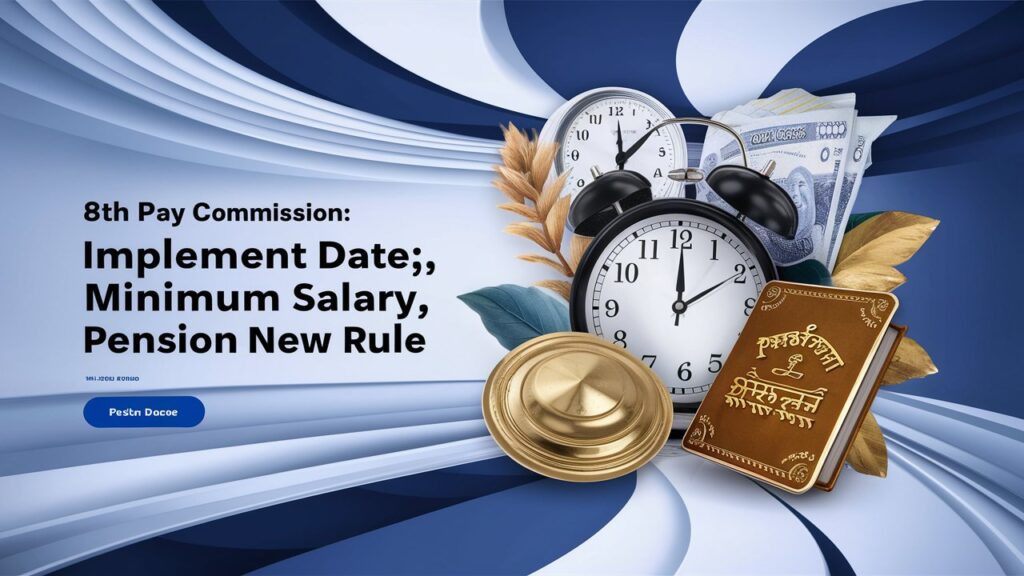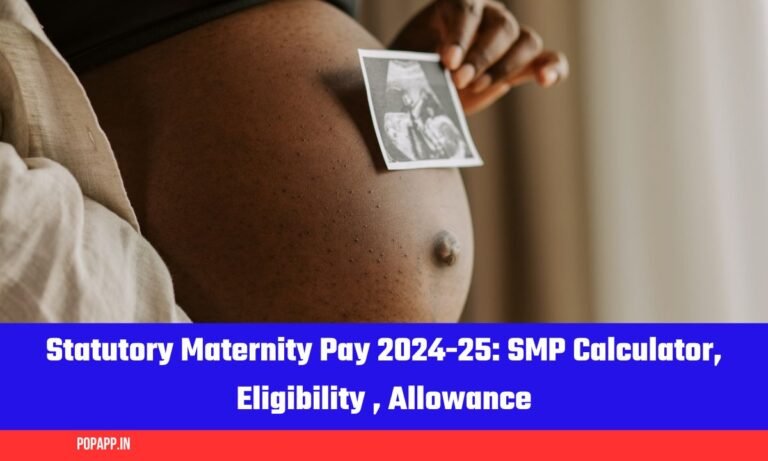The 8th Pay Commission is likely to change the pay structure for central government employees and pensioners in India from January 2026. This commission is a follow-up to the 10-year schedule of pay commissions, and with changing economic variables such as inflation and the cost of living, it will have far-reaching implications on salaries and pensions for millions.
The 8th Pay Commission is set to change the pay and pension structure of C.G. employees in India. Indeed, the commission’s recommendations will leave millions of employees and pensioners better off due to expected increases in minimum salary and a substantial enhancement of pensions while saving around Rs one lakh crore by way of pay revision besides payments related to revised allowances.
These might be specifics that can only come from the final report, which then has to become a part of government policy. But this sense of first impression gives you an idea of just how much the future pay packets will depend on what comes out from recommendations made by the Seventh Pay Commission in India.

Page Contents
8th Pay Commissions
Pay Commissions are set up to review and suggest changes in the salary structure of central government employees, with a view to help them be closer together due to recognition over economic price index loss for several years following freedom regarding nature. The 7th Pay Commission was a significant increase in basic pay and pensions, enacted in 2016. The minimum salary was increased to Rs 18,000 while the pension had a floor of Rs 9,000 per month. This commission also brought in the NPS or New Pension Scheme, an act which till date has been a subject of debate and displeasure amongst many employees.
The time of the 7th Pay Commission is expected to end by December 2025, which means all these things are now focusing on the upcoming NPS for paying more and better salaries & pensions in this pay commission. With no relief coming soon from the inflationary pressures and higher cost of living, central employees/pensioners look forward to substantial hikes.
8th Pay Commission Fitment Factor
One of the crucial things in order to ascertain pay amount under any Pay Commission is the fitment factor. Fitment is nothing but a method of index: On the summing up or on matrix whatever pay has to be arrived after the last 5th CPC scale, it was decided as per increment given under each level w.e.f. The 7th Pay Commission, for example, applied a fitment factor of 2.57 to hike the minimum basic pay from ₹7,000 to ₹18,000. The 8th Pay Commission is expected to recommend a fitment factor between 1.92 and 3.68.
On the lower end of this expectation, a 1.92 fitment factor would indicate that civil servants should see only a modest improvement in basic pay for at least extra and more comprehensive training, potentially pushing up a minimum monthly salary to around ₹26-28 thousand. Yet if the Fitment Factor remains at 3.68, despite claims that it will be hiked due to various employee unions, the minimum salary might scale up further surpassing ₹40k.
8th Pay Minimum Salary and Pension
The minimum salary revision is being considered to be one of the most awaited results out of the 8th Pay Commission. Assuming the fitment factor is in line with expectations, this could lead to a substantial increase in minimum basic salary offering some relief from higher inflation and cost of living. If the hike happens, it would mean a 20-30% jump from the existing minimum salary to ₹26,000-₹28,000, and hence their living standards get directly improved with more money in hand.
Pensioners, too, will benefit from this revision. If the final fitment factor is more than 2.57 times, then even the minimum pension (₹9,000) could go up to ₹17,280 or above. Such an increase would go some way to help retirees make ends meet, as the cost of living continues to climb.
8th Pay Commission Revisions to Allowances
Incentives corresponding to basic salaries and pensions, which will be based on performance, are projected by the 8th Pay Commission, along with other allowances that would reflect actual economic conditions. These include:
1. DA (Dearness Allowance): Nowadays, in every salary sheet, the most important part is DA as it helps to meet inflation. The 8th Pay Commission is believed to reset DA levels such that the real wages of employees are guarded from price increases.
2. House Rent Allowance (HRA): Expect cherishing properties to separate absent adding up, in particular concerning untaken places role be concerned about rising by heightening calibrating replicas.
3. Travel Allowances: The fact that transportation costs are going up, travel allowances may also have to be revised in order to accurately reflect the expenses for official trips.
New Pension Scheme (NPS)
The New Pension Scheme (NPS): Rolled out during the 7th Pay Commission, it was introduced in lieu of the Old Pension Scheme and offers market-linked pension benefits. Although the NPS was created to help reduce government pension liabilities, it has not been well received by employees, many of whom choose the guaranteed benefits under OPS.
There is the Confederation of Central Government Employees and Workers that has been at the forefront to demand, alternatively, the restoration of OPS or introduce many substantial improvements under NPS. The 8th Pay Commission will hopefully look into these issues, and we might see a hybrid model or better benefits under NPS to address this matter.
Broader Economic Implications
Introduction of the 8th Pay Commission in Indian Economy: Higher salaries and pensions could stoke consumption, especially in the housing, automobile, and consumer goods sectors, given that government employees constitute a significant chunk of consumers. On the flip side, it may also result in higher government spending levels needing fiscal upsizing or re-routing of resources.
This is where the tightrope walk of balancing fair wages for government servants against fiscal discipline becomes crucial to assess by the time the 8th Pay Commission completes its course.
FAQ
1. When will the 8th Pay Commission be implemented?
The 8th Pay Commission is supposed to be implemented on January 1, 2026, as per the lineage of pay commissions carried out following every ten-year schedule.
2. Why is the fitment factor Important?
Fitment factor To arrive at new basic pay by multiplying old pay, this is important. A higher fitment factor will translate to a better salary hike.
3. So, will the New Pension Scheme be modified?
Speculation is rife there will be a rethink on the New Pension Scheme under the 8th Pay Commission, paving the way for reviews or rollback to the Old Pension Scheme.
4. What will be the Economic Impact of the 8th Pay Commission?
The introduction of the 8th Pay Commission could provide a consumption boost to sectors in general besides adding impetus and inflation, higher fiscal burden with government would require careful eternal factors.




